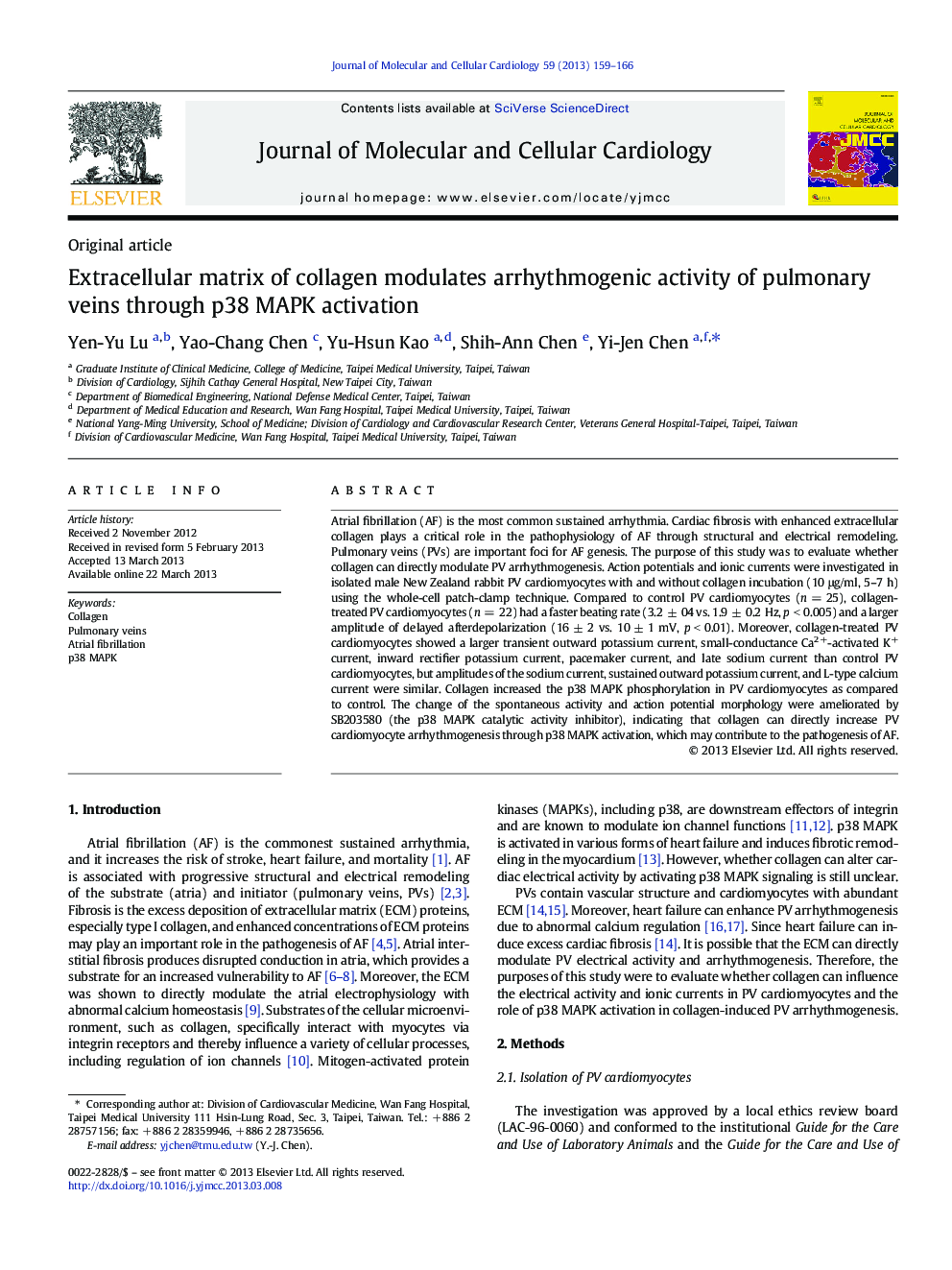| Article ID | Journal | Published Year | Pages | File Type |
|---|---|---|---|---|
| 8475272 | Journal of Molecular and Cellular Cardiology | 2013 | 8 Pages |
Abstract
Atrial fibrillation (AF) is the most common sustained arrhythmia. Cardiac fibrosis with enhanced extracellular collagen plays a critical role in the pathophysiology of AF through structural and electrical remodeling. Pulmonary veins (PVs) are important foci for AF genesis. The purpose of this study was to evaluate whether collagen can directly modulate PV arrhythmogenesis. Action potentials and ionic currents were investigated in isolated male New Zealand rabbit PV cardiomyocytes with and without collagen incubation (10 μg/ml, 5-7 h) using the whole-cell patch-clamp technique. Compared to control PV cardiomyocytes (n = 25), collagen-treated PV cardiomyocytes (n = 22) had a faster beating rate (3.2 ± 04 vs. 1.9 ± 0.2 Hz, p < 0.005) and a larger amplitude of delayed afterdepolarization (16 ± 2 vs. 10 ± 1 mV, p < 0.01). Moreover, collagen-treated PV cardiomyocytes showed a larger transient outward potassium current, small-conductance Ca2 +-activated K+ current, inward rectifier potassium current, pacemaker current, and late sodium current than control PV cardiomyocytes, but amplitudes of the sodium current, sustained outward potassium current, and L-type calcium current were similar. Collagen increased the p38 MAPK phosphorylation in PV cardiomyocytes as compared to control. The change of the spontaneous activity and action potential morphology were ameliorated by SB203580 (the p38 MAPK catalytic activity inhibitor), indicating that collagen can directly increase PV cardiomyocyte arrhythmogenesis through p38 MAPK activation, which may contribute to the pathogenesis of AF.
Related Topics
Life Sciences
Biochemistry, Genetics and Molecular Biology
Cell Biology
Authors
Yen-Yu Lu, Yao-Chang Chen, Yu-Hsun Kao, Shih-Ann Chen, Yi-Jen Chen,
